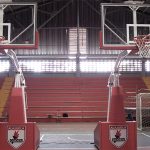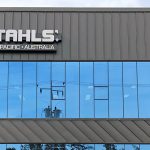Russell Corporation is reporting that it expects fully diluted EPS for the second quarter of 2005 to be between 12 cents and 14 centes per share, which is below the Company's previously issued earnings guidance. The current Thomson First Call mean estimate is 21 cents per share.
The revised estimate of earnings is primarily the result of several short- term operational issues and lower than anticipated reductions in costs. At this point, the Company does not anticipate being able to overcome the quarter's earnings shortfall for the full year.
Company-wide sales for the quarter were close to plan and increased 18% to more than $342 million. The sales gains were driven by acquisitions which, as expected, had no material impact on earnings per share for the quarter.
The Activewear segment experienced a more than 10% sales increase for the quarter. The gains were led by the Artwear channel, which experienced a 15% unit increase. Artwear was not able to meet all of the sales demands in the second quarter which required a rapid increase in capacity, resulting in substantial excess training expenses, start-up costs and higher costs from new contractors being brought on line. Furthermore, there was a strong, continuing shift to hooded sweatshirts which created additional overtime and training costs associated with this change. While taking aggressive actions to rectify these problems, management anticipates certain operational issues may not be completely resolved until later in the year.
Excluding the acquisitions made in 2004, the Sporting Goods segment experienced sales declines of approximately 13% versus the previous year. Sales gains in Russell Athletic's base business were not able to offset the expected declines versus a year ago related to the absence of the Major League Baseball business and the discontinuance of a Discus branded program at retail.
Mossy Oak experienced significantly lower sales in the quarter, primarily due to a major shift in timing of fall shipments and also a reduction of a major, lower-priced program, as previously discussed.
Chairman and CEO Jack Ward said “We are disappointed in the quarter's results, which were impacted by several operational issues, including not being able to lower our overall costs for the quarter as planned. We believe these results are primarily due to short term execution problems, which we have already begun to address. We intend to re-examine every aspect of our businesses for further growth opportunities and cost reductions.” Ward concluded, “Despite these short-term disappointments, we continue to feel positive about our long-term strategic direction as outlined earlier this year.”















